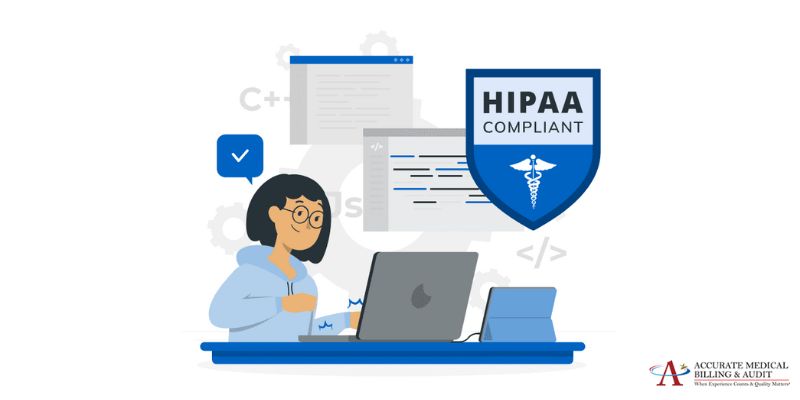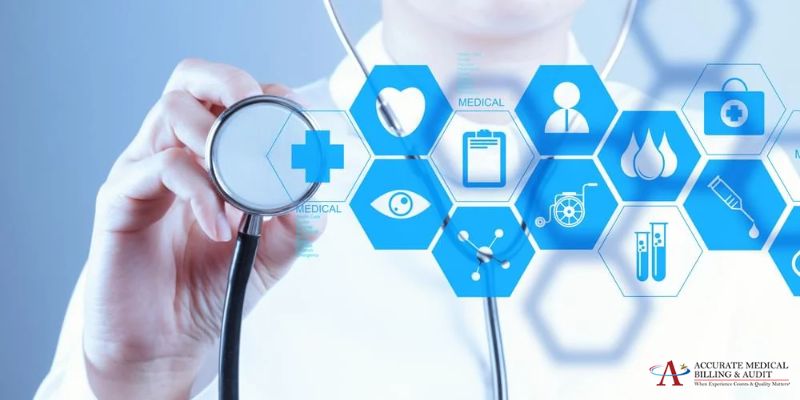In today’s digital world, many things are just a few clicks away. Therefore, protecting personal information has become more crucial than ever before. This is especially true in the healthcare industry, where the protection of patient privacy is important. Legislative measures like HIPAA and the Privacy Act have been implemented to address this issue.
Understanding HIPAA Certification

HIPAA certification pertains to the acknowledgment of specific individuals in a healthcare establishment. These people must have acquired the necessary understanding and knowledge about HIPAA to carry out the organization’s policies and procedures.
It entails completing training programs and passing HIPAA regulations and best practices examinations. Obtaining HIPAA certifications is advantageous in showcasing proficiency and dedication toward safeguarding protected health information (PHI). It can also open up new career opportunities for individuals in the healthcare industry.
Benefits of HIPAA Certification

Healthcare professionals must acquire certification for expertise, abilities, and ethical principles. These experiences are essential for protecting patient privacy, complying with HIPAA regulations, and maintaining the trust and confidentiality necessary for delivering top-notch healthcare services.
The certification helps boost professional credibility and also expands career opportunities. It also plays a crucial role in promoting a culture of privacy and security within the healthcare field. The benefits of obtaining HIPAA certification substantially influence healthcare professionals‘ career advancement.
1. A better understanding of HIPAA regulations
Completing a HIPAA certification provides healthcare workers with a comprehensive understanding of the complex regulations. The regulations are outlined in the Privacy Rule, Security Rule, and Breach Notification Rule.
This certification guarantees that professionals understand the legal and ethical responsibilities of managing, storing, and transmitting PHI.
Through an in-depth exploration of these rules, HIPAA-certified individuals can handle the intricacies of handling healthcare data. They can also minimize the likelihood of privacy breaches and promote the confidentiality of patient data. This knowledge and proficiency are crucial in fostering a safe space for sensitive information.
2. Improved patient trust
Achieving HIPAA certification shows a clear dedication to protecting patient privacy and implementing strong data protection measures in the healthcare industry. This displays compliance with strict regulations and builds trust and credibility with patients.
When patients know that trained professionals are handling their confidential health information, it fosters stronger relationships between them and their healthcare providers. This can lead to heightened patient satisfaction, increased loyalty to healthcare organizations, and an overall positive impression of the provider’s reputation.
The concrete assurance provided by HIPAA certification emphasizes a commitment to upholding confidentiality and security standards in managing sensitive information.
3. Reduced risk of HIPAA violations and penalties
Obtaining a HIPAA certification is an invaluable professional asset. This is because it equips them with comprehensive knowledge and skills to expertly navigate potential compliance gaps, effectively mitigate risks, and proactively prevent HIPAA violations.
Mastery of the intricacies of HIPAA regulations enables these individuals to implement robust measures to safeguard patient privacy and ensure data security. This proficiency shields organizations from facing severe consequences such as financial penalties and damage to their reputation due to non-compliance.
HIPAA-certified professionals play a crucial role in upholding the integrity of healthcare operations, as they foster a secure environment and maintain the trust placed in them by patients.
4. Expanded employment opportunities
In today’s competitive job market for healthcare professionals, having HIPAA certification sets candidates apart from the rest. Organizations prioritize hiring individuals with this certification, recognizing it as a testament to their dedication to upholding patient privacy and protecting PHI.
This distinction is especially beneficial for positions involving the handling, managing, or accessing sensitive patient data. Employers highly value the specialized expertise and abilities gained through HIPAA certification. This makes it a crucial asset for those striving to excel in roles that require a thorough comprehension of healthcare privacy and security protocols.
5. Advancement in career trajectory
Achieving HIPAA certification enhances one’s proficiency in safeguarding patient confidentiality. An added advantage is that it also serves as a driving force for professional advancement in the healthcare field.
Certified individuals such as privacy officers, compliance managers, and security analysts are primed for leadership opportunities within healthcare organizations. These crucial roles entail overseeing HIPAA compliance and implementing robust policies and procedures to reinforce the security and privacy of patient data.
With the growing reliance on digital systems and data in the healthcare sector, experts with HIPAA certification are highly sought-after. With their knowledge, they can spearhead efforts that prioritize protecting sensitive health information, making a significant contribution.
6. Ongoing professional growth
HIPAA certification encourages healthcare workers to stay up-to-date on HIPAA regulations’ newest developments and modifications. In other words, it acts as a catalyst for ongoing professional development.
The related requirements for continuing education confirm what they already know. It also forces them to adjust to new technologies and changing privacy issues in the healthcare industry.
This dedication to staying current and knowledgeable improves their ability to navigate the ever-changing healthcare information management landscape. With it, they are guaranteed to remain well-equipped to protect patient privacy and adhere to constantly changing standards in healthcare data security.
Conclusion
Obtaining HIPAA certification is a crucial necessity for healthcare professionals. This is because it guarantees continued adherence to regulations and patient confidentiality. It is a powerful symbol of their dedication to providing top-quality healthcare while instilling confidence and responsibility within the industry.





I’ve been surfing on-line more than 3 hours these days, yet I never discovered any interesting article like yours. It…